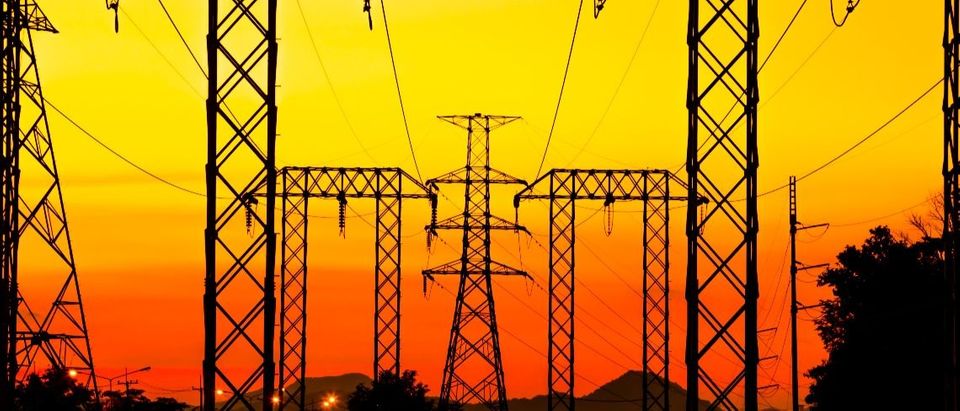In May of this year, the Trump administration set into motion a plan that could undermine the future of our nation’s energy supply by bailing out coal power plants. Citing national security, the Trump administration is looking to intervene in electricity markets to favor coal power plants facilities in a misguided effort to preserve America’s reliance on coal. The truth is, today there are cheaper, cleaner, more efficient means of producing energy — and there is no national security need to pro-up coal.
As I have stated before, there is no evidence to support the idea that subsidizing old coal power plants will increase the amount of affordable, electricity that is available to the American people.
Nevertheless, that has not stopped this administration. In May of 2018, the Department of Energy (DOE) released a memo that condemned our nation’s reliance on natural gas pipelines. According to the DOE memo, natural gas pipelines are “increasingly vulnerable to cyber- and physical attacks,” in ways that coal and nuclear plants are not. The memo ultimately concluded that these stated vulnerabilities in our natural gas infrastructure are a threat to national security giving the administration convenient justification to subsidize our aging coal infrastructure. The Administration has created a false choice: Pipelines are no more vulnerable to attacks than powerlines, transformers, or nuclear power plants.
The truth is, our electrical system is vulnerable to attack. The U.S. Department of Homeland Security (DHS) has blamed the Russian government for orchestrating a series of infiltrations on energy infrastructure. The fear is that these – and other – nefarious actors will be able to shut-down our electricity system from the outside. This is a very real national security threat. Unfortunately, subsidizing coal power plants will not protect us. Public officials must not let the Trump Administration use the very real national security threats posed to the American electrical grid as a cover for propping up failing coal power plants. We must find real solutions to fixing vulnerabilities in our network’s infrastructure. Our leaders instead should be investing in new, expanded infrastructure and appropriate technology that address both supply needs and national security concerns.
The reality is that stakeholders from both the public and private sector have already spent a significant amount of resources to address pipeline security. In the private sector, more than 50 natural gas and oil companies share cyber-threat intelligence with one another through the Oil and Natural Gas Information Sharing and Analysis Center. In the public sector, the Transportation Security Administration and National Institute of Standards and Technology provide standards, guidelines, and best practices to help companies mitigate cyber security threats. Seeking to address emerging threats, both agencies released updated versions of their security frameworks in 2018.
Even the DOE is engaging in practical solutions to address cyber security. In June, the DOE announced investments in research and development (R&D) projects that will develop innovative technologies tackling cyber security issues across the energy generation sector. DOE’s National Energy Technology Laboratory (NETL) recently announced it would oversee investments in 15 projects that will enhance fossil energy power systems, four of which are specifically related to grid cyber security.
Resilience and energy security in our power supply comes from variety. A diverse fuel supply for the American electric grid is imperative, and undermining the natural gas pipeline system that has single-handedly made our electric grid both reliable and efficient is counterproductive. Natural gas has unique attributes that enhance the reliability and resiliency of the power system, not obstruct it. As INGAA President Donald Santa has stated, “The expansiveness of the natural gas pipeline network is a strength, not a weakness.”
Public officials must also remember that natural gas use in power generation has provided significant environmental and consumer benefits. On top of being cheaper than other power-generation sources, natural gas has played a key role in reducing carbon dioxide emissions from electricity generation in the U.S. to near 30-year lows. When paired with renewable generation, increases in efficiency, and a modern, secure smart grid, gas can be the centerpiece of a secure energy system. Already, gas provides 33 percent of our electricity: with abundant supplies coming from gas fields in North Dakota, Texas, and Pennsylvania, it can grow further to provide affordable, clean, and resilient energy supply.
Energy infrastructure cyber-security is an emerging issue that is being addressed by both the public and private sector. With continued investment and innovation, natural gas pipeline infrastructure can become more resilient and reliable as a means for energy generation. Now is not the time to step back into the past by bailing out outdated forms of energy production. Instead, let’s work together to invest in infrastructure that provides a cheaper, more environmentally friendly form of energy generation that protects America from the real threats from abroad.
Andrew Holland is chief operating officer of the American Security Project, a nonpartisan national security think tank. His research and writing focuses at the intersection of energy, the environment, trade and national security.
The views and opinions expressed in this commentary are those of the author and do not reflect the official position of The Daily Caller.


